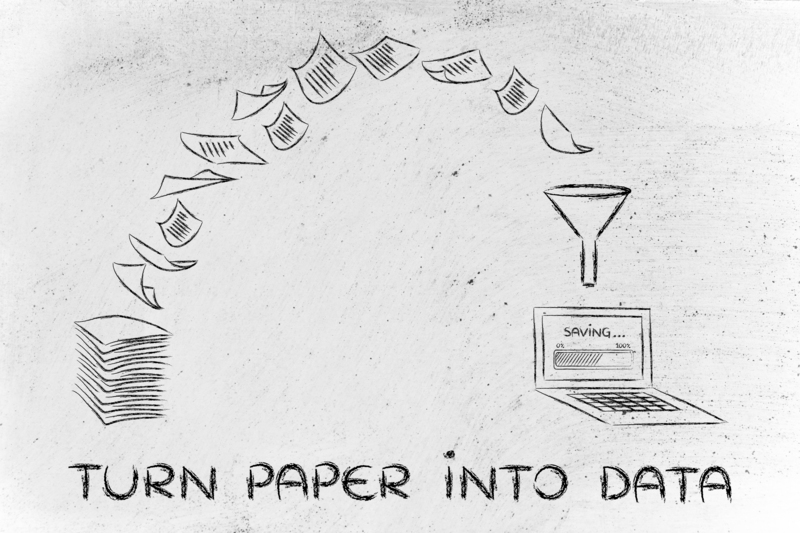Creative Ways to Minimize Spending on Bulky Waste Items
When it comes to managing household waste, bulky waste items such as furniture, appliances, and building materials can pose a significant challenge. These larger items are not only cumbersome to move, but also expensive to dispose of if handled improperly. Fortunately, there are innovative strategies you can employ to effectively reduce your expenses associated with discarding large waste. This comprehensive guide will explore creative ways to minimize spending on bulky waste items, keeping both your budget and the environment in mind.
Understanding Bulky Waste Items and Their Costs
Before exploring the solutions, it's important to clarify what constitutes bulky waste products. Generally, these are items too large to fit in standard trash bins, like:
- Old couches, chairs, and dining tables
- Beds, mattresses, and box springs
- Large household appliances (fridges, washing machines, stoves)
- Carpets, rugs, and flooring materials
- Garden equipment and outdoor furniture
- Renovation debris or building materials
Municipalities or waste collection companies often levy additional fees for collecting these items, or require you to transport them to a specific disposal site. This can result in mounting costs -- something every homeowner or renter wants to avoid.

Why Reducing Bulky Waste Disposal Expenses Matters
Managing bulky waste disposal creatively does not just save you money. It also complements sustainability efforts, helps reduce landfill use, and encourages a culture of reuse and recycling. By finding innovative solutions, you can positively impact both your wallet and your community.
1. Reuse and Upcycle Bulky Waste for New Purposes
Transform Old Items into Creative Home Solutions
One of the most cost-effective approaches is repurposing bulky waste items. With a little imagination, you can turn old furniture, fixtures, and appliances into something functional or stylish for your home.
- Convert an Old Dresser into a TV stand, entry bench, or garden planter by repainting and modifying its structure.
- Use Broken Chairs as quirky plant holders or outdoor garden art.
- Turn Wooden Pallets into garden beds, storage shelves, or coffee tables with some basic carpentry.
- Transform a Bathtub into a backyard pond or a raised flower bed.
- Appliance Magic: Remove internal parts from an old refrigerator and use it as a spacious storage unit for gardening equipment or tools.
*Upcycling* reduces disposal needs and can save hundreds of dollars in furnishing or landscaping costs.
2. Sell or Donate Usable Bulky Items
Finding New Homes for Old But Functional Pieces
If your bulky items are still in usable condition, consider selling or donating them rather than paying for disposal.
- Online Marketplaces: List items on sites like Craigslist, Facebook Marketplace, Gumtree, or local classifieds. Even items with minor defects may be picked up for free by people who want to refurbish them.
- Charities and Nonprofits: Organizations such as Habitat for Humanity, The Salvation Army, or your local furniture bank often accept gently used items, sometimes offering a free pick-up service.
- Community Freecycle Groups: Freecycle and similar networks connect people interested in reusing resources locally. Offering your item for free often ensures speedy collection.
Donating or selling bulky items not only minimizes your disposal spending, but might even earn you a little extra cash, while supporting local causes.
3. Organize a Bulk Waste Swap or Giveaway
Harness the Power of Community
Communal efforts can simplify the process and save on costs:
- Host a Neighborhood Swap: Arrange a weekend where residents display unwanted bulky items at the curb or in a common area for others to claim.
- Set up a Free 'Take-it-or-Leave-it' Spot: Work with local councils or homeowner associations to organize temporary swap zones for furniture or appliances, especially during local cleanup events.
- Participate in City-Sponsored Cleanup Days: Many municipalities organize annual or quarterly bulk waste collections at reduced rates or allow free drop-off at certain sites.
Pooling resources and collaborating with neighbors can drastically reduce individual bulky waste removal expenses.
4. Disassemble Large Items Before Disposal
Smart Disassembly to Cut Disposal Costs
Most waste companies base their fees on volume or weight. By breaking down bulky items, you can often use standard curbside collection services or fit more into your personal vehicle for self-haul.
- Remove Non-Recyclable Parts: Strip items of metals, glass, or recyclable plastics. Many recycling centers accept separated materials for free or for payment.
- Flatten Furniture: Dismantling tables, bed frames, or cabinets can make these pieces more manageable and fit into smaller bins or vehicles.
- Cut-Up Mattresses or Carpets: Use utility knives to section these items, making them easier and cheaper to dispose of.
This simple step can significantly reduce your bulky waste disposal costs and maximize recycling opportunities.
5. Leverage Manufacturer and Retailer Take-Back Programs
Let the Suppliers Handle Your Old Items
Some retailers and manufacturers offer programs that help offset or eliminate the cost of disposing of bulky household items:
- Furniture Stores: When buying new furniture, ask if the store offers free removal of your old items.
- Appliance Retailers: Many shops remove and responsibly dispose of old units upon delivery of a new one, sometimes at no extra charge.
- Mattress Take-Back: Some bedding stores include old mattress pick-up with delivery of your purchase, or participate in manufacturer-backed recycling schemes.
These take-back programs are a win-win, as they reduce your effort and eliminate or minimize bulky waste spending.
6. Rent or Borrow, Don't Buy Bulky Items
Avoid Creating Bulky Waste in the First Place
One of the most creative ways to cut costs on bulky waste is simply to avoid acquiring such items unless needed.
- Rent Large Items: For short-term needs (e.g., party tables, construction tools, temporary appliances), use rental services instead of purchasing.
- Borrow from Neighbors: Implement "items libraries" or join local lending groups to share infrequently-used objects (carpet cleaners, ladders, etc.).
This minimizes not only your out-of-pocket costs but also the possibility of future bulky waste disposal issues.
7. Opt for Professional Waste Removal Carefully
Shop Smart for Bulky Waste Collection Services
If disposing of waste yourself isn't feasible, compare your bulky item disposal options carefully:
- Bulk Discounts: Some haulers charge less per item with larger loads. Coordinate with neighbors for combined pick-ups to share the cost.
- Muncipal Services: Always check if your local municipality offers free or low-cost collection for certain item types or during set periods.
- Compare Prices: Obtain multiple quotes from waste removal companies. Choose those whose pricing structure aligns with the nature and volume of your items.
Shopping around and bundling services ensures you never spend more than necessary to manage
8. Participate in Bulky Waste Recycling Programs
Keep Bulky Items Out of Landfills - and Out of Your Budget
Specialized local recycling programs for bulky items often accept:
- Mattresses and bedframes (steel springs recovered, foam recycled)
- Appliances (metals, electronics, refrigerants extracted)
- Carpets or large textiles (fiber upcycling, donation to animal shelters)
- Construction debris (concrete and wood repurposed in road building)
Check with your city waste department or environmental organizations for drop-off events or permanent recycling centers. Sometimes, manufacturers and eco-parks pay for certain recyclable materials, turning your waste into a small income generator!
9. Plan Purchases with Disposal in Mind
Buy Smart Now, Save Later
Thinking ahead is another effective approach to minimizing bulky waste disposal costs:
- Choose Modular or Easy-to-Disassemble Furniture: Items that can be separated make end-of-life disposal easier and cheaper.
- Select Durable Materials: Long-lasting pieces mean less frequent replacement; quality over quantity always wins in the long run.
- Buy Secondhand: When you buy used, you support the reuse cycle and may face fewer disposal hesitations in the future.
- Prioritize Recyclables: Check that appliances, furniture, or other items are made from recyclable or biodegradable materials.
A mindful shopping approach helps secure both savings and sustainability.

10. Coordinate with Local Authorities for Special Collections
Tap Into Municipal Bulky Waste Services
Some cities offer scheduled or seasonal bulky waste pickups as part of their regular services. This can be an opportunity to dispose of large items at little or no extra charge, as opposed to hiring a private hauler.
- Check city web pages or call the waste department to learn about pickup days for furniture, appliances, or renovation materials.
- Register in advance for collection slots or to receive curbside collection bins for large items.
- Adhere to local regulations for item preparation -- sometimes they require plastic wrapping or removal of doors from appliances for safety.
Taking advantage of these services reduces costs and streamlines the disposal process.
Conclusion: Smart Strategies for Bulky Waste Management
Effectively reducing spending on bulky waste items involves a blend of creativity, community engagement, and advance planning. By reusing, upcycling, donating, or recycling large household items, you can prevent hefty disposal fees - and even contribute to a greener environment. Remember, each item you keep out of the landfill or find a new purpose for is a step toward more sustainable living and a healthier budget.
By applying these practical and creative ways to minimize spending on bulky waste items, you can ensure no valuable material or hard-earned money goes to waste. Start implementing these strategies today for a cleaner home, a better community, and a happier bank account!